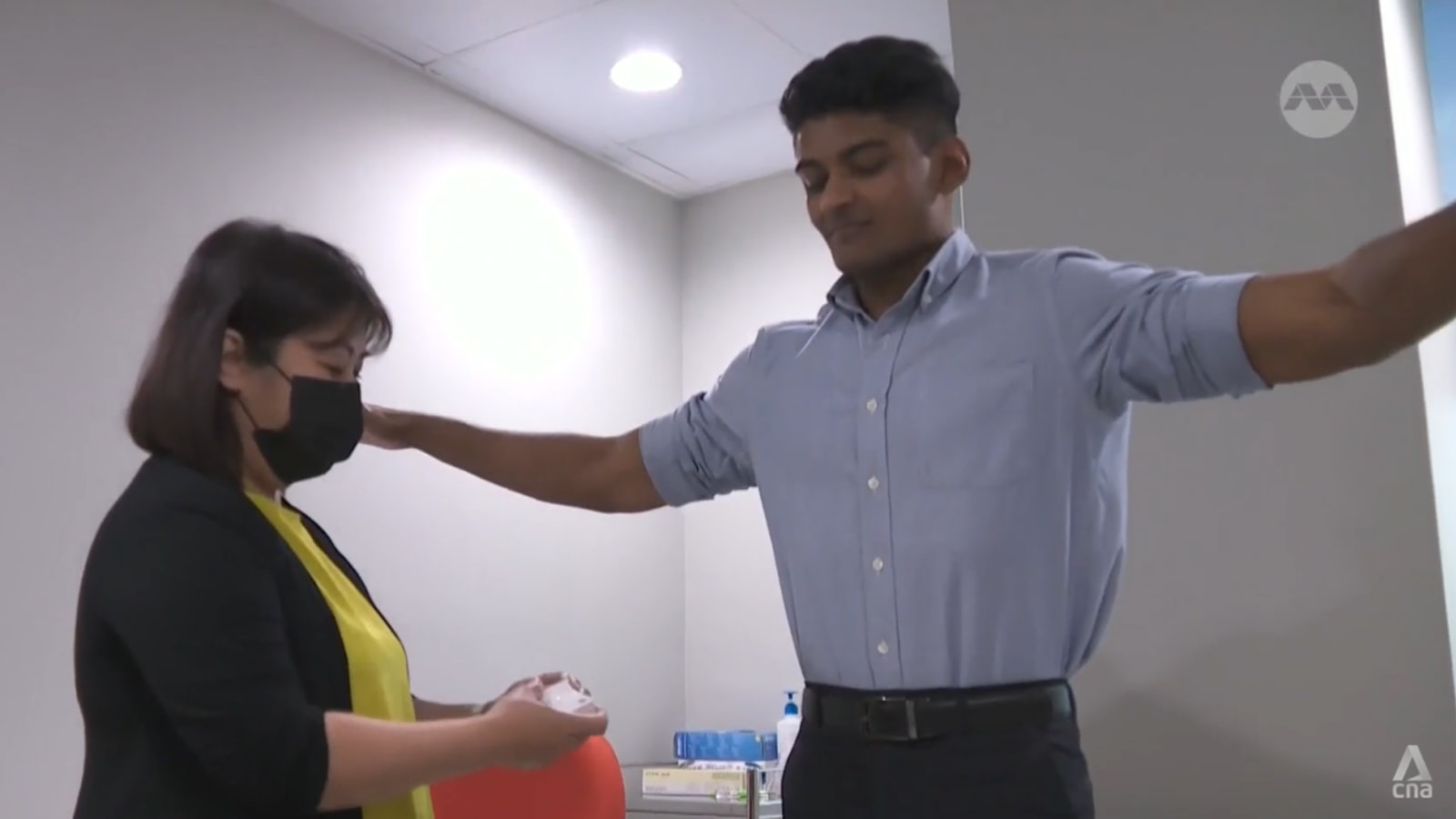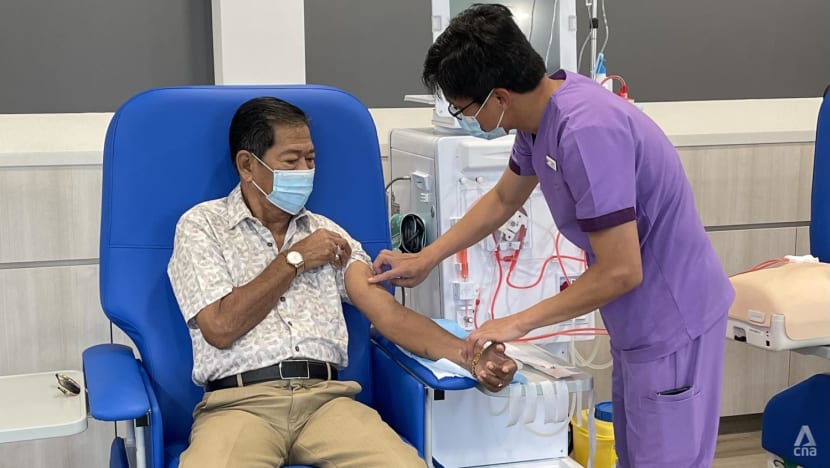
SINGAPORE: Kidney screening has now become a yearly affair for 28-year-old Mark Peter.
Since he found out that his father has kidney issues, he has had a “deep-rooted fear” of also suffering from kidney failure.
“I have high blood pressure and that’s one of the key indicators of kidney failure. So I’ve always been very curious about how my health is,” he said.
He is one of 300 people who have had their kidneys checked in the past year as part of a National Kidney Foundation (NKF) intervention programme.
More than 300,000 people here suffer from chronic kidney disease, but the organisation warned that there could be even more undetected cases. Around six people are diagnosed with kidney failure each day, a threefold increase from two decades ago.
The increase in numbers “causes major concern”, NKF chief executive officer Tim Oei said, adding that kidney disease numbers will increase proportionately with diabetes numbers.
IMPORTANCE OF SCREENING
The organisation is urging more to come forward for screening, especially high-risk groups such as those with diabetes, amid a rise in renal failure cases and an ageing population.
Screening can catch kidney disease at an early stage before the organ fails.
The disease worsens progressively, with the kidney shrinking in size and losing its ability to filter out waste product from a patient’s blood. At the final stage, the patient would require lifetime dialysis or a kidney transplant.
“Many times, people don’t realise the signs and symptoms of renal failure until it is too late,” said Mr Oei.
“And this is where they need to be educated, and awareness be made to them, that early detection will help arrest or even severely delay the consequence of end stage renal disease.”
NKF also hopes to work with the government to make kidney checks a mainstay in the national screening programme, Screen for Life, he said.
The programme’s emphasis is on hypertension and diabetes, and some cancers, said Mr Oei.
“Renal (disease) is very close to diabetes and hypertension. If you are checking those two, it’s just one more that you can do a test on, because it’s connected to the other two major chronic illnesses,” he said.
In the meantime, NKF will work closely with hospitals and family physicians to raise awareness on kidney screening.
DEALING WITH MORE CASES
As the number of kidney failure patients here rises, existing dialysis premises are being upgraded to accommodate them.

Toa Payoh NKF Centre along Toa Payoh Lorong 8, which was built in 1987, is Singapore’s oldest community-based dialysis centre. It has doubled its capacity and can now serve 168 patients across 28 dialysis stations.
It is also equipped with new chairs, the latest dialysis technology and an air filtration system, thanks to a S$2.2 million donation from the Toa Payoh Seu Teck Sean Tong temple.
NKF plans to similarly upgrade another 10 of its 42 dialysis centres.
The NKF is also on the lookout for new sites to cater to the growing number of kidney failure cases, with a focus on mature estates as the population ages.
“We continue to go where the need is and it’s really focused on the more mature housing estates. And so we are looking at all ways and means, talking to many different parties to create a bigger pipeline, because the need is actually quite pressing,” said NKF chairman Arthur Lang.
“We need more, but we’re trying to control that increase in number by making sure that fewer and fewer people are diagnosed with chronic kidney disease,” he added.

